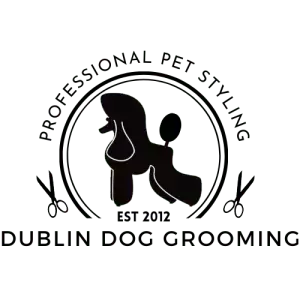Introduction
Dublin Dog Grooming will always strive to provide the highest quality of service on all matters
pertaining to the provision of Dog Grooming Course. However, the training provider recognises that there will be occasions where students wish to register dissatisfaction or concern. On such occasions the students will need to be guided to the appropriate procedure to allow their complaint/appeal to be heard.
Scope
This procedure is to be used to address complaints associated with:
Any Training provider Policy, Procedure or Regulation
Training Services
The conduct or actions of a member or members of staff
Misinformation regarding courses, support services and facilities
Procedural errors with reference to student applications
In the first instance the training provider encourages students to raise concerns, questions, and problems promptly and responsibly to the tutor. Prompt expression of concerns directly with the member of staff involved will normally lead to a quick and satisfactory informal resolution of most issues. However, if this is not successful then the following procedure should be followed.
The training provider aims to investigate complaints in a way that:
Encourages informal resolution of problems and facilitates their early resolution if possible
Is fair
Treats complaints with appropriate seriousness and confidentiality
Definition
A complaint is the expression of a specific concern about the provision by the training provider of a service, either academic or non-academic, to which a response is reasonably expected, and in respect of which the informal approach outlined in 1.1 above has not produced a satisfactory outcome.
Process
4.1. All complaints will be thoroughly and objectively investigated.
4.2. In accordance with the colleges Equal Opportunities policy, all complainants will be treated equally regardless of their status and will not be treated adversely as a result of their making a complaint.
4.3. Every attempt will be made to resolve issues on an informal basis in the first instance, without recourse to a formal procedure.
4.4. Where at any stage the complaint is made the subject of a formal discussion or hearing, students are entitled to be accompanied by a member of staff or fellow student.
Eligibility
5.1. Current students, and those accepted onto a course of study at the training provider can complain under this procedure. A student may submit a complaint in writing up to three months following their graduation from the College.
5.2. Groups of students may submit a collective complaint subject to the complaint being individually signed by each student concerned.
5.3. Anonymous and/or third-party complaints will not be accepted.
5.4 For a complaint to be considered as a formal complaint it must be submitted to the training provider in writing. This may take the form of a letter, fax or email. The complainant will be asked to make clear the specific nature of the complaint.
5.5 Complaints should be made without undue delay. The normal time limit for submitting a complaint is:
Within four weeks after having become aware of the matter the student is dissatisfied with;
5.6 Extension of these time limits will normally only be possible in exceptional circumstances, such as illness or other circumstances beyond the student’s control.
5.7 Complaints should not be vexatious in nature. Where, after proper investigation, there is reason to believe that a complaint is vexatious or motivated by malice, action may be taken against the student under Dublin Dog Grooming Contract.
Procedure
Confidentiality
All complaints will be judged on their individual merit and will be dealt with in confidence unless the complainant has clearly indicated otherwise.
Every effort will be made to maintain confidentiality, but proper investigation of a complaint may necessitate the disclosure of confidential information. Should this be the case, the student making the complaint will be notified to check that they wish to proceed with the complaint.
No complaint will affect the way a student is treated or assessed in their study.
Should a complaint involve the conduct or actions of a member of staff, such parties will have the right to see any evidence or documents relating to the complaint as part of the investigation.
Disabled Students
Where a student has declared a disability to the training provider, all endeavours will be made to ensure that information is available to them at all stages in appropriate formats and that reasonable adjustments are made to the proceedings and facilities to accommodate their needs. (in accordance with Disability Statement)
Student Support and Representation
8.1 If a student is considering making a complaint, advice can be sought from a number
of sources. These may include one or more drawn from the following list.
Personal tutor/course manager
Student Representative
8.2 Students may wish to engage with one or more of the above to discuss if their concern should be considered a complaint in either the informal or formal sense or if there are alternative ways of reducing their concern. They may also engage with one or more of the above to seek guidance and support on understanding the requirements of the complaint’s procedure.
8.3 A student making a complaint has the right to be accompanied at any formal
meetings or hearings concerning their complaint.
Informal Resolution
9.1. Every attempt should be made to resolve issues on an informal basis in the first instance, without recourse to a formal procedure.
9.2 An issue should, where possible, be addressed orally to the member of staff who it most directly concerns. If this is not possible, it may be addressed to any of the sources of support listed above under section 8. If the issue is raised with the member of staff concerned, they can often provide an immediate explanation or solution.
9.3 If the student remains dissatisfied, they may lodge a formal complaint under Stage One of the process outlined below (Complaints Procedure).
Formal resolution
10.1 Stage 1: The student should submit a formal complaint in writing to the appropriate manager. The complainant must be clear as to the nature of the complaint and, wherever possible, quote times, dates and details that allow the following investigation to focus on the matter in hand.
10.2 It may be necessary for the Director responsible to contact the complainant to gain further understanding of the complaint.
10.3 If the complainant is not a student of the College, but an employer, a prospective student or other client, then they need to contact the appropriate manager, directly depending on the nature of the complaint.
10.4 The letter will be acknowledged within 5 working days and the complainant will usually receive a full response, in writing, usually within 10 college working days.
10.5 If the complaint is not satisfied with the response, they will have up to 10 working
days to write to the Director identifying the reasons for their dissatisfaction.
10.6 Stage 2: The Director will write to confirm that (s) he has received your complaint within 5 college working days. (S)He will investigate the issue, either personally or in conjunction with the appropriate manager(s).
The Director will reply formally, in writing, usually within 10 college working days.
10.7 Stage 3: If the complaint is not satisfied with the response, they will have up to 10 working days to write to the Director identifying the reasons for their dissatisfaction. The letter will be acknowledged within 5 college working days and there will be a full response usually within 15 working days of the receipt of the acknowledgement.
10.8 The complainant will have up to 10 working days to move the complaint to the next stage. When 10 working days have lapsed at the completion of any formal stage the College will deem the matter closed and will issue a Completion of Procedures letter.
Appeal
11.1 In the event that the complainant remains dissatisfied with the response made by
the training provider on issue of the Completion of Procedures letter then they have the
option to appeal with 5 working days of receipt of letter.
12. Administration and Monitoring
12.1 All complaints will be recorded in writing and will be subject to a monitoring and reporting system. All complaints will be dealt with constructively. Where a complaint is upheld, the training provider will take reasonable action within its power to ensure that similar situations do not occur in the future.
In order to facilitate monitoring of volume and type of complaints, any member of staff receiving notification of a complaint under stages 1 and 2 of the above procedure shall advise the Director.
Course Administrator:
That a complaint has been received and provide a copy of the complaint.
Whether or not the complaint was upheld.
If the complaint was upheld, action proposed by the training provider to put things right;
If the complaint was not upheld, whether the student has been advised of the reasons for this decision.




